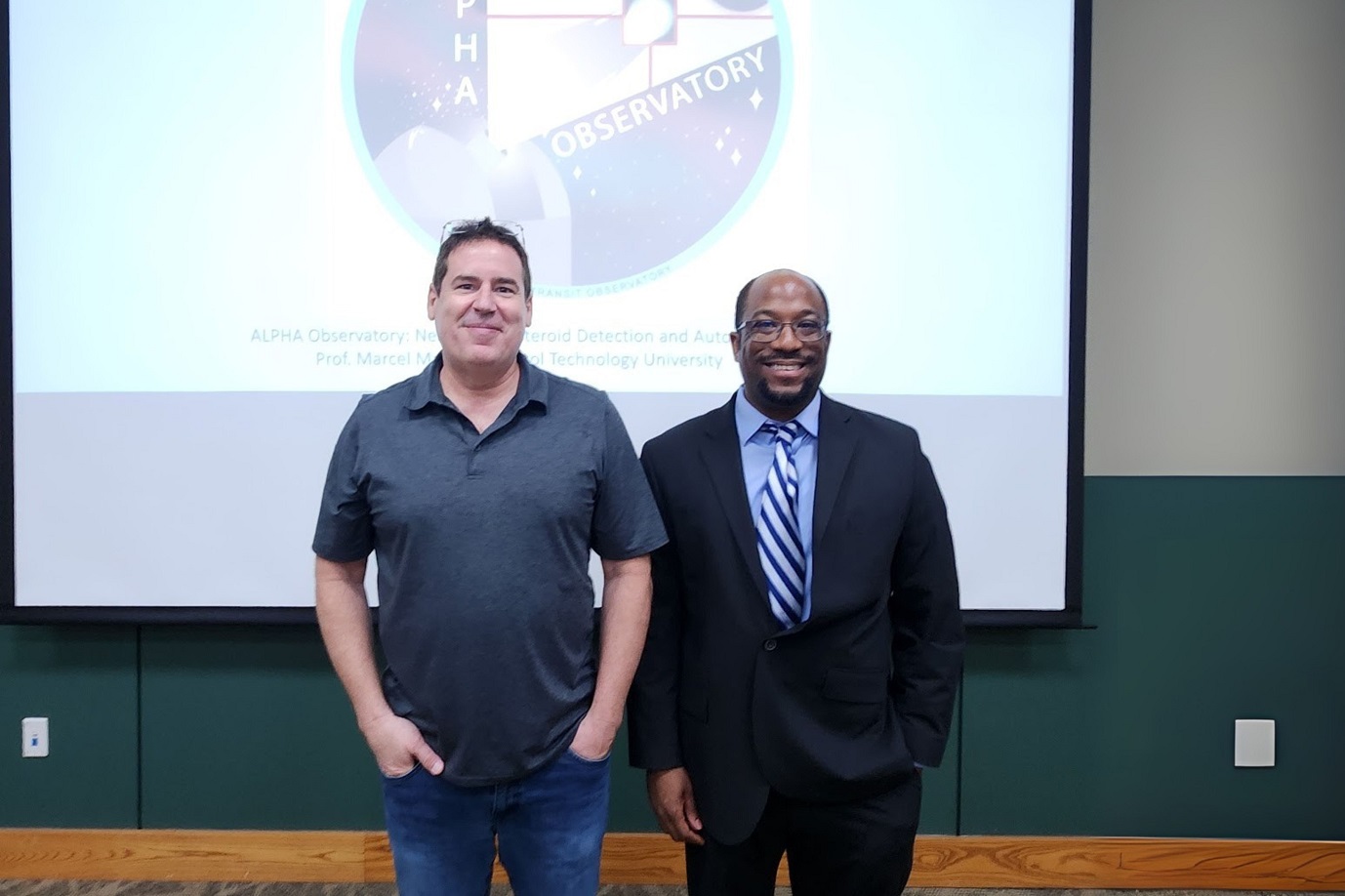Astronautical engineering professor Marcel Mabson gave a presentation at the Howard Astronomical League’s (HAL) monthly meeting at the Robinson Nature Center in Columbia, MD on Thursday, June 19, 2025.
HAL is a local nonprofit whose mission is to promote and encourage science education, particularly in astronomy. The group holds monthly meetings for its members and stargazing events for the public in-person and online. Capitol Tech was invited to take part in the meeting and showcase our ALPHA Observatory's latest data-collection results.
The meeting was attended by over 100 members who asked Prof. Mabson various technical questions about ALPHA and its automated operations, exchanging lessons learned during the observatory operation period.
“It was a great honor to speak with the HAL members,” says Prof. Mabson. “Attendees were impressed by our amazing students who professionally maintain and operate the observatory and the high quality of the data that they produce.”
In his presentation, Prof. Mabson detailed the history and challenges of characterizing and tracking asteroids in our solar system, with over 1.4 million asteroids listed since the discovery of asteroid Ceres in 1801. Each year, scientists catalog an additional 10,000 objects, with many of these classified as near-earth objects (NEOs).
The important task of performing follow-up studies after the initial discovery of NEOs lies with universities and advanced amateur astronomers. Capitol Tech’s ALPHA Observatory diligently contributes to such research, monitoring between 20–40 asteroids per night. ALPHA submits tracking and rotation data to the Minor Planet Center (MPC), determines orbits to ensure targets remain a safe distance from Earth, performs variable studies of cepheid stars and eclipsing star systems, and performs follow-up detection of newly discovered hot-Jupiter exoplanets.
The ALPHA Observatory program began in January 2022 with a grant from the Maryland Space Grant Consortium (MDSGC), allowing students to work hands-on with state-of-the-art observatory equipment, studying NEOs and generating informative data that directly contributes to current NASA and MPC research, paving the way for successful future careers in this exciting field.
Over the past year, the observatory expanded its tracking duties, displaying the ability to generate accurate tracking data on Earth-orbiting spacecraft in various orbits, including low, medium, and geostationary. The latest observation campaign from March 2025 observed over 120 asteroids, 3 comets, and 2 hot-Jupiter exoplanets and generated ALPHA’s first color image.
Capitol Tech was proud to receive a larger MDSGC grant this year that will help support ongoing ALPHA initiatives, including upgrading and expanding hardware, software, and simulation capabilities.
“The ALPHA Observatory certainly reflects Capitol Tech’s motto,” stated HAL President Victor Sanchez. “With minimal cost and dedication, this system has generated world-class science data and will inspire future scientists and engineers.”
For more information about Capitol Technology University’s astronautical engineering program, visit www.captechu.edu.
Written by Erica Decker



